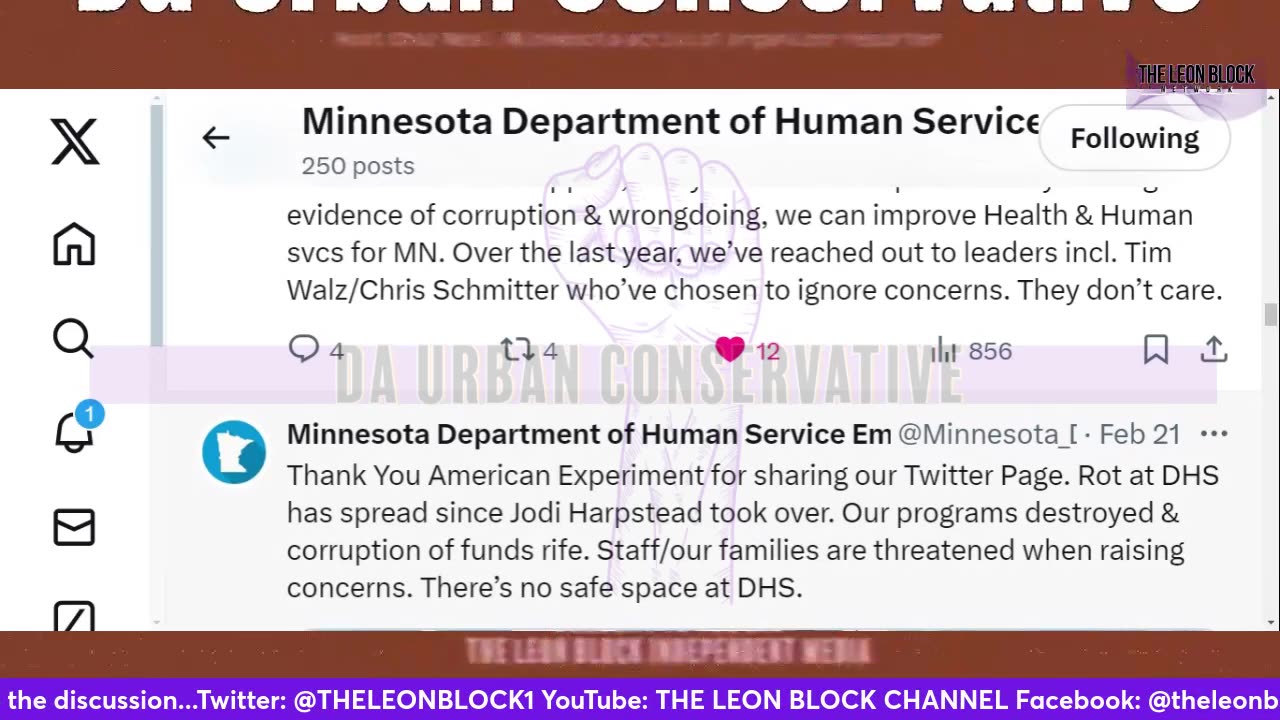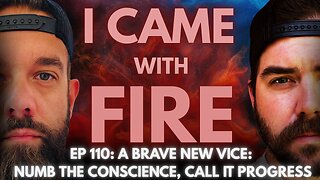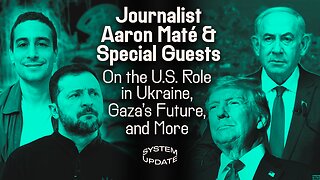Premium Only Content

DAC- Shadows of Justice: Unmasking the Legal Drama
🎙️ Welcome to another episode of "DA Urban Conservative," where we dissect critical issues impacting our communities. Today, we delve into the unfolding legal saga in Minnesota, where a Hennepin County judge's decision has ignited debates on justice, transparency, and media access.
In August 2021, Minnesota State Trooper Ryan Londregan faced a storm of legal repercussions after the shooting of motorist Ricky Cobb II during a routine traffic stop on Interstate 94 in Minneapolis. The incident led to Londregan being charged with second-degree unintentional murder, first-degree assault, and second-degree manslaughter.
Fast forward to the present, and the courtroom drama takes a new twist. Hennepin County Attorney Mary Moriarty's office filed a motion seeking to temporarily restrict public access to court records. The request was met with opposition from a coalition of media outlets, including the Star Tribune, Minnesota Public Radio, and local TV news stations, alongside defense attorneys.
The motion proposed a 48-hour "screening period" for court filings. The idea was to allow attorneys to review evidence and motions before public disclosure, aiming to prevent the release of confidential, inadmissible, or prejudicial information. However, District Judge Tamara Garcia, presiding over the case, delivered a pivotal decision this Wednesday.
Judge Garcia ruled against the prosecutors' request, deeming it "premature and overbroad." Her decision emphasized the importance of public access to court records, asserting a constitutional presumption in favor of transparency. Garcia noted that the risk of pretrial publicity was insufficient to justify sealing all filings, emphasizing the need for a case-by-case approach.
The media coalition welcomed Garcia's decision, celebrating it as a victory for the First Amendment right to access court records. Media attorney Leita Walker, representing the coalition, argued against what she called "draconian restrictions," pointing out the lack of a compelling explanation from the state on why this case should differ from others involving law enforcement defendants.
Typically, court documents become available to the public shortly after filing, allowing journalists and the community to track legal arguments and developments. However, in high-profile cases, attorneys often seek to seal documents containing confidential information.
Judge Garcia addressed concerns about potential jury bias due to pretrial publicity. She emphasized that the coverage of this case had not reached a level to seriously taint the jury pool, expressing confidence that even if some inadmissible or prejudicial evidence became public, it would not prevent the court from selecting a fair and unbiased jury.
This legal clash raises crucial questions about the delicate balance between justice, media freedom, and public access to information. Join us in this episode as we dissect the intricacies of this case and its broader implications. How does the legal system navigate transparency while ensuring a fair trial? Can media scrutiny coexist with the pursuit of justice? Let's explore these questions and more on today's episode of "The Urban Conservative." #LegalSaga #JusticeSystem #TransparencyDebate #UrbanConservativePodcast 🎧
-
 2:12:01
2:12:01
I_Came_With_Fire_Podcast
14 hours agoA Brave New Vice: Numb the Conscience, Call it Progress
39.9K13 -
 4:14:29
4:14:29
SynthTrax & DJ Cheezus Livestreams
1 day agoFriday Night Synthwave 80s 90s Electronica and more DJ MIX Livestream Feel The Waves Edition
46K2 -
 2:09:19
2:09:19
Side Scrollers Podcast
12 hours agoNerd Duel Tournament of Champions! Who Will Win?!
72.2K5 -
 8:53:50
8:53:50
SpartakusLIVE
13 hours agoNEW Easter Egg, SPECIALIST || Duos w/ @GloryJean followed by quads later!
75.9K2 -
 1:40:06
1:40:06
Glenn Greenwald
13 hours agoAaron Maté and Special Guests on the U.S. Role in Ukraine, Gaza's Future & More | SYSTEM UPDATE #462
173K118 -
 3:49:09
3:49:09
Nerdrotic
16 hours ago $25.60 earnedSuperman's James Gunn Reshoots, Harry Potter DOA! R.I.P. Winds of Winter | Friday Night Tights 356
125K40 -
 2:23:47
2:23:47
DasNello
9 hours agoLADIES AND GENTLEMEN, I PRESENT ELDEN RING NIGHT REIGN!!!
33.1K1 -
 5:35:38
5:35:38
tacetmort3m
9 hours ago🔴 LIVE - LAST STREAM BEFORE DUNE? - NO MORE ROOM IN HELL 2
25.9K -
 1:14:57
1:14:57
Sarah Westall
12 hours agoGame Changing Peptide Increases Immunity 50 to 100x Better than Nutrition Alone w/ Dr. Diane Kazer
42.9K6 -
 9:14:52
9:14:52
Dr Disrespect
19 hours ago🔴LIVE - DR DISRESPECT - WARZONE - SNIPING AND WINNING
210K14